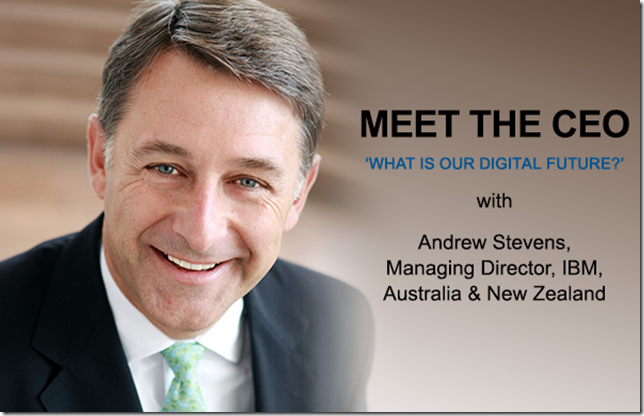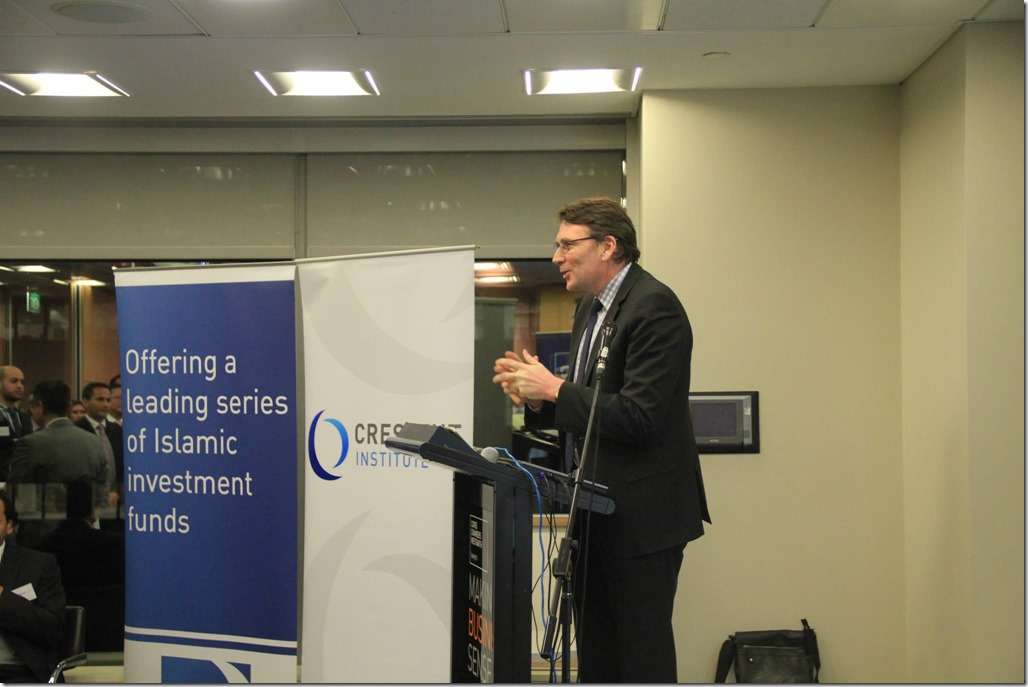Oct 1, 2013 | Events, Leadership |
Ok, so while I’m documenting insights from successful leaders, I thought I would write a quick post about things I picked up while listening to Andrew Stevens, Managing Director of IBM Australia and New Zealand last week.

As an AGSM alumnus, I get invited to the Meet the CEO series hosted by the University of NSW Australian School of Business. I’ve attended a couple of events before, where Cameron Clyne (CEO of National Australia Bank) and Alan Joyce (CEO of Qantas Airways Ltd) shared their views, and both times I came away with a sense of clarity about approaches to leadership and career management.
I don’t particularly want to dwell on everything Andrew said, since that can be watched on the recorded video, but rather the technology and leadership insights that I found interesting.
First realisation: I really need to go away and read the Australia in the Asian Century White Paper. Both Andrew and David Thodey mentioned this paper in the same week, and that tells me I better read it and take a position on its content.
Technology
- While there’s no easy and agreed-upon definition of what innovation in technology means, Andrew defined it as “the application of IT to create new services and business models”.
- An increase in consumerisation is good for the consumer, because it puts pressure on businesses to deliver better. Big Data helps this by enabling greater segmentation – down to a market of one. This helps the consumer because they can be offered a targeted product or service that they desire at a price point that is within their statistically acceptable threshold.
- Broadband: the economic utility of this era.
Management and Leadership
- A good CEO provides a balance of
- Realism – Analytical definition of the problem being faced
- Hope – That individuals and the organisation is going forward instead of stagnating or regressing
- Change management – Being able to move other people with you
- Great leaders (for Andrew) apply principles from sport – regardless of how well the game plan has been understood and rehearsed, knowing when the game has changed and adapting to the situation.
Lots to absorb and think about from an hour’s interview.
Also, I’m reminded again about the other thing Andrew had in common with David – and in fact with the other two CEOs previously interviewed in the series that I’ve attended: the total and effortless ease with which they communicate. Definitely something I need to keep working on.
Sep 30, 2013 | Events, Leadership |
I love the events at the Crescent Institute – an informal, unpretentious, no-hidden-agendas forum to listen and speak to Australian thought leaders from across the business, social and government arenas.
Last Thursday – 26 September 2013 – the Crescent Institute hosted David Thodey, CEO of Telstra. Between the free-flowing conversations, meeting new people and catching up with friends, I had the pleasure to listen to insights from the leader of Australia’s largest telecommunications provider.

Having never actually heard David speak before, it was easy to see why he heads an organisation which last year generated $25.4 billion in revenue and had a reported EBITDA of $10.2 billion. Without pulling punches, skirting around questions or trying to appease political sensitivities, he provided a lucid, honest and light-hearted account of what it means to run a company that is, to a large extent, almost pivotal to the technological success of Australia.
Among the discussion of topical issues, the history and future of Telstra and the context of technology within the Australian economy, I picked up some interesting insights about David’s leadership and management style. Fairly standard textbook stuff around change management, especially during difficult decisions:
- Be open, honest and transparent
- Plan well, retrain as many people as you can, and treat everyone with respect
- Recognise that you have many stakeholders and are responsible for the long term
What struck me was that it didn’t feel like something that he had rehearsed – it was in response to an unmoderated question from the audience and it felt completely sincere. This was also completely congruent with his overall discussion, as well as his demeanour throughout the event – warm, approachable and personal … authentic.
Side note: I’m currently very annoyed by the “authentic” leadership bandwagon … but that’s a post for another day.
His other reminder about dealing with the constant increase in pressure on your time: “Plan to plan”. While “doing” is great, you need to put some time aside to “think” about what and why you’re doing what you’re doing, and whether you’re going in the right direction.
He even chatted with me about my Nokia Lumia 925 Windows Phone. What a guy! And no … I wasn’t asking about the Amber Update – I already got it earlier this month. 

All in all, I was very impressed. I have no doubt that he’s a tough, determined and demanding leader – as one would expect from someone who has reached the position he has – but at the same time I couldn’t help but be drawn in by his humility and infected with his obvious excitement for what lies ahead.
Check out the Crescent Institute’s picture gallery for more pictures of the event.



